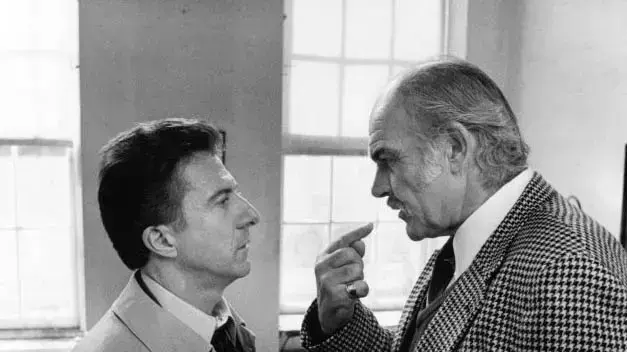- Click to share on Facebook (Opens in a new window)
- Click to share on Twitter (Opens in a new window)
- Click to share on LinkedIn (Opens in a new window)
- Click to email a friend (Opens in a new window)
Putin: in the Kremlin until 2036? 0:32
(CNN Spanish) - World leaders such as the Prime Minister of Israel, Benjamin Netanyahu, the Chancellor of Germany, Angela Merkel, and the President of Russia, Vladimir Putin, and several African leaders are some of those who have been in power the longest and they continue to do so in 2020.
Recently Putin, who has been in power since 2000 - not only as president but also as prime minister - has given indications that he would seek reelection if the constitutional amendment was approved. He is seeking reelection for a new term that could leave him as president. until 2036.
These are some of the current non-monarchical leaders who have been in power the longest.
Benjamin Netanyahu, (1996-1999; 2009 present): 14 years
Israel: Netanyahu and Gantz's new government take office 2:26Bibi Netanyahu, as he is popularly known in Israel, has served on two occasions as Israel's Prime Minister: the first between 1996 and 1999, and the second from 2009 to present, spending 14 years in uninterrupted power.
Netanyahu is Israel's longest-serving leader in power, exceeding even the mandate of the country's founder, David Ben-Gurion, and founded his political career with a promise to keep Israel safe.
He was Israel's ambassador to the United Nations between 1984 and 1988, and when he returned to his country he began to lead the country's political right opposing any deal with the Palestinians, including the 1993 Oslo Accords.
In 2019 Israel went to the polls, but Netanyahu was not so easily reelected, as this took place in the midst of an investigation in which the Prime Minister was formally indicted on charges of bribery, fraud and breach of trust, in three separate cases. of corruption. His trial began 15 days after the elections.
Prosecutors say in the most serious case, known as Case 4000, Netanyahu offered regulatory benefits worth more than 1 billion shekels (approximately $ 280 million) to his friend, millionaire Shaul Elovitch, in exchange for better coverage. at Walla, an Elovitch-owned news website.
Netanyahu has repeatedly defended his innocence and called the investigations an "coup attempt" pushed by the left and the media, an opinion shared by his supporters. Elovitch also denies the allegations.
After 17 months of political uncertainty, in May 2020 Benjamin Netanyahu took office for the fifth time as Prime Minister of Israel, in a government formation unprecedented in the country's history. Centrist Benny Gantz became alternate prime minister and would replace Netanyahu in November 2021, under an agreement established by both.
Vladimir Putin, Russia (2000-2008; 2012— present): 15 years
Russia's President Vladimir Putin at a ceremony in Moscow on June 12. (Credit: MIKHAIL KLIMENTYEV / SPUTNIK / AFP via Getty Images)
Russia's President Vladimir Putin served as his country's president for the first time between 2000 and 2008. He then returned to office in 2012 where he has been ever since and seeks, through political maneuvering, to remain in office until 2036.
Putin hopes that a series of constitutional amendments will allow him to re-elect himself if they are approved in a July 1 referendum. Under current Russian law, Putin would be required to resign from the presidency in 2024, when his term ends.
Putin was also Russia's prime minister from 1999 to 2000, and between his two presidential terms, from 2008 to 2012.
Recep Tayyip Erdogan, Turkey (2003— present): 17 years
The entrance to politics of the current President of Turkey, Recep Tayyip Erdogan, began in the mid-1980s when in 1984 he was elected as district head of the Welfare Party and between 1994 and 1998 he was mayor of Istanbul.
In 2001 Erdogan confused the Justice and Development Party (AKP) and the following year he won the parliamentary elections by a wide margin, assuring him of his first term as prime minister, a position he held between 2003 and 2014.
In 2013, a corruption scandal erupts, investigating more than 50 suspects, including members of Erdogan's closest circle. In the following month, the government dismisses 350 police officers participating in the investigation, and 10 months later, the prosecutor in charge closes the investigation.
On August 10, 2014, Erdogan was elected president in the first direct elections in Turkey's history. In 2016 there is an attempted coup d'etat to remove him from power, but it is not successful.
The following year, a vote is held on a constitutional amendment that expands Erdogan's presidential powers. Turkish state-run media reports that around 51% of people voted yes in the referendum, which abolished the country's parliamentary system and would potentially allow Erdogan to remain in office until 2029.
In June 2018, Erdogan was re-elected president with 52.5% of the votes, beginning a new five-year term with radical new powers granted in the powerful referendum of the previous year, which according to his critics was a flagrant seizure of power. Under the new system, the prime minister's office was abolished, the powers of parliament were reduced, and the president was given broad executive authority.
Angela Merkel (2003- present): 17 years
Angela Merkel has been prominent in politics for thirty years, when in 1990 she was elected to the German parliament. Ten years later, in 2000, she was elected as the first president of the Christian Democratic Union of Germany (CDU) party. In 2005 she became the first chancellor of Germany.
She was re-elected to her post in 2009 and 2013 and began a fourth term as chancellor in 2018 after nearly six months of political turmoil in a federal election in which millions of voters left the two main parties: Merkel's Christian Democratic Union and the Party. Social Democrat (SPD), who turned to the left and right parties.
In a secret ballot, 364 of the 709 members of the Bundestag voted for Merkel, nine more than the required 50%. Thirty-five parliamentarians from the parties ruling under Merkel did not vote to reelect her.
That year, Merkel said she would not seek another reelection, and her last term as leader is expected to be completed in 2021, completing nearly two decades in office.
Daniel Ortega, Nicaragua (1985-1990; 2007— present): 18 years
Adding his two intermittent periods, it is already 18 years in which Daniel Ortega has been in power.
Ortega was elected for the first time as president in 1985, he lost the elections of 1990, 1996 and 2001. In 2006 he was elected and began his second government in 2007. He participated in two more elections (2011 and 2016) and in both he has been victorious.
Nicaragua's constitution prohibits presidents from being re-elected, but that did not prevent Ortega from running for seven consecutive presidential races.
Alexander Lukashenko, Belarus (1994— present): 26 years old
Belarus President Alexander Lukashenko gives a speech during a military parade to celebrate the 75th anniversary of the Soviet Union's victory over Nazi Germany in World War II on May 9, 2020. (Credit: SERGEI GAPON / POOL / AFP via Getty Images)
Belarus President Alexander Lukashenko has ruled over the former Soviet republic of more than 9 million people since 1994 and is running for the sixth time in an election scheduled for August 9.
Lukashenko has long drawn international criticism for suppressing dissent, and the country's secret police, still known as the KGB - often arrest and harass opposition activists and independent journalists.
Ahead of the upcoming election, the country has seen massive protests as opposition to the president grows, with thousands of people marching through the streets of 10 cities where arrests were recorded.
Two of Lukashenko's main opponents are currently in the KGB and in police custody: popular YouTube blogger Sergei Tikhanovskiy, who was arrested in late May, and former Belgazprombank president Viktor Babaryko, who was arrested on 18 June together with his son and campaign manager, Eduard Babaryko, according to his campaigns.
Yoweri Museveni, Uganda (1986— present): 34 years old
Museveni, a former guerrilla leader and former defense minister, overthrew a military regime in 1986.
In this country, the presidency is defined by a majority popular vote for periods of five years, without term limits. Museveni held the presidency for 10 years before being elected in the country's first direct presidential elections in 1996. After his reelection in 2001, Parliament removed the limits of the presidential term in 2005. He was elected to a fifth term in February 2016. .
Denis Sassou-Nguesso, Republic of the Congo (1979—1992; 2002— present): 36 years
Sassou-Nguesso was president for the first time from 1979 to 1992, when he was defeated in the elections. He returned to power in 1997 during a civil war, eventually running for and winning the presidential election in 2002.
In the Republic of the Congo, there is a majority popular voting system with up to three terms in a row of five years each, although a 2015 constitutional referendum allowed Sassou-Nguesso to waive the limits, according to Freedom House, a US nonprofit organization that promote democracy. The last election was in March 2016.
Paul Biya, Cameroon (1982— present): 38 years
Biya, 87, has been in power since November 1982, when he was prime minister and succeeded President Ahmadou Ahidjo, who resigned.
Biya was last elected in October 2012 in a popular voting electoral system over a period of seven years. There are no term limits.
Teodoro Obiang Nguema Mbasogo, Equatorial Guinea (1979— present): 41 years
In power since August 3, 1979, when he unseated his uncle in a military coup.
In this country, the president is elected in a majority popular vote for periods of seven years. Nguema Mbasogo last claimed victory in an April 2016 election, allegedly with 93.7% of the vote. Members of the opposition and human rights groups have questioned the fairness of the elections.
- With information from Jasson Hanna, Oren Liebermann, Andrew Carey, Tara John, Nathan Hodge, Zamira Rahim and Mary Ilyushina from CNN, and José Levy and Paula Bravo from CNN en Español.
World leaders


/cloudfront-eu-central-1.images.arcpublishing.com/prisa/BXKLZ5GBEBBWJHDUIDG2B5ODGE.jpg)











